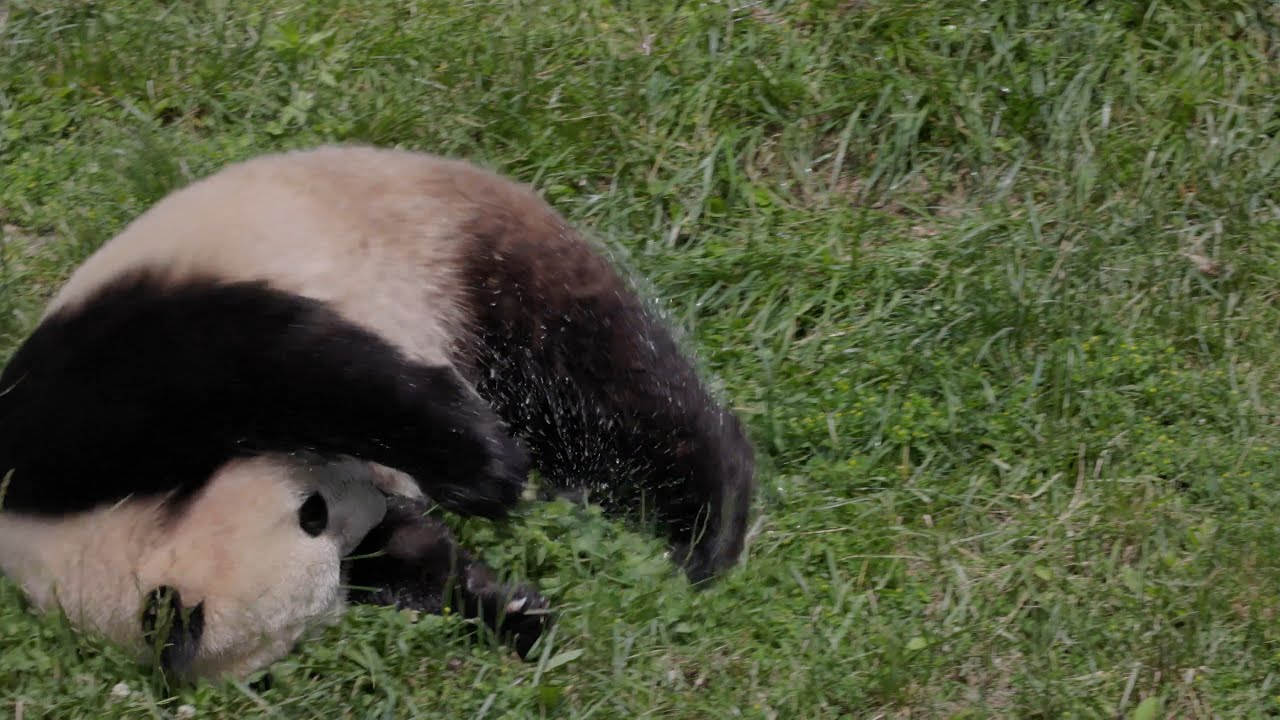- Bao Li’s third birthday celebration and significance
- Zoological significance and species overview of giant pandas
- Zoo management practices for giant pandas
- Conservation efforts and their impact on panda populations
- The role of zoos in educating the public and promoting wildlife conservation
Bao Li’s Third Birthday Celebration and Significance
Bao Li, a beloved giant panda at the DC Zoo, celebrated his third birthday with much fanfare. This event highlights not only the importance of individual animals in zoos but also the broader context of species conservation. Bao Li’s milestone birthday is a testament to the zoo’s commitment to providing excellent care and a suitable environment for pandas.
The celebration featured panda-themed decorations, a specially crafted “cake” made of bamboo, fruits, and other panda-friendly treats. Events like these help raise awareness about the species and educate the public on the challenges pandas face in their natural habitat. Celebrating Bao Li helps foster a connection between zoo visitors and conservation efforts, enhancing public support for these initiatives.
Zoological Significance and Species Overview of Giant Pandas
Giant pandas (Ailuropoda melanoleuca) are native to China and are known for their distinctive black and white fur. They primarily inhabit bamboo forests in Sichuan, Shaanxi, and Gansu provinces. These areas offer a temperate climate and dense bamboo understory vital for their survival. Additionally, pandas have evolved to have strong molar teeth and robust jaw musculature to process bamboo, constituting over 99% of their diet.
Pandas play a unique role in their ecosystem. Their feeding habits help promote forest growth and biodiversity by spreading seeds and facilitating plant propagation. Understanding these roles underscores the importance of preserving their natural habitats.
Despite their significant role, pandas face numerous threats, including habitat loss, low birth rates, and climate change. Efforts by both Chinese authorities and international conservation organizations have gradually improved the pandas’ status from “endangered” to “vulnerable.” However, ongoing conservation efforts remain crucial for ensuring their long-term survival.
Zoo Management Practices for Giant Pandas
Managing the health and well-being of giant pandas in captivity involves a blend of veterinary care, nutrition, and environmental enrichment. DC Zoo’s panda care team follows rigorous health-monitoring protocols, including regular veterinary check-ups, to monitor weight, dental health, and overall well-being.
A carefully controlled diet is critical for captive pandas. Zookeepers provide bamboo and supplement it with fruits, high-fiber biscuits, and occasionally, vegetables. Given pandas’ specialized diet, ensuring a consistent and ample supply of bamboo is a primary logistic challenge for many zoos.
Environmental enrichment is another key aspect of panda care. Enrichment activities, such as hidden food puzzles, climbing structures, and interactive toys, promote physical activity and mental stimulation. Such practices mimic the challenges pandas would encounter in the wild, helping to keep them healthy and engaged.
Conservation Efforts and Their Impact on Panda Populations
Conservation efforts are central to addressing the challenges panda populations face in the wild. One of the most effective strategies has been habitat conservation and restoration. Protected areas and wildlife corridors in China aim to reconnect fragmented habitats, allowing pandas to roam freely and sustain their populations.
Breeding programs in captivity have also played a crucial role in increasing panda numbers. These programs involve both artificial insemination and natural breeding, along with genetic studies to maintain a diverse gene pool. Collaboration between zoos worldwide aids in sharing knowledge, expertise, and genetic material to bolster these programs.
Research initiatives in the wild and captivity continue to enhance understanding of panda behavior, health, and reproduction. Monitoring wild populations through GPS collars and remote cameras provides valuable data for devising effective conservation strategies.
The Role of Zoos in Educating the Public and Promoting Wildlife Conservation
Zoos like the DC Zoo play an indispensable role in wildlife conservation. By conducting educational outreach programs, zoos increase public awareness and understanding of conservation issues. Interactive exhibits, informational signage, and special events like Bao Li’s birthday party are valuable tools for engaging visitors.
Moreover, zoos facilitate scientific research, contributing to broader conservation goals. Collaborations with universities and research institutions allow for studying animal behavior, health issues, and genetics under controlled conditions.
Zoos also participate in international conservation networks, sharing expertise and resources to maximize the impact of conservation efforts. They act as custodians of endangered species, providing safe environments for breeding and rehabilitation programs.
Bao Li’s third birthday is more than just a celebration. It symbolizes the concerted efforts of zoo management, conservation initiatives, and public engagement to ensure that species like the giant panda continue to thrive for future generations. Through dedicated care, scientific research, and community involvement, we can all contribute to the ongoing efforts to preserve and protect our planet’s wildlife.
*****
Source Description
🐼🎉 Sending GIANT birthday wishes to a “pawsome” panda: Bao Li! Today, this playful and charismatic cele-bear-ty turns 3 years old. We are so excited to welcome him to Washington, D.C., before the end of the year.
. . .
🖤🤍 Bao Li deeply connects to the Smithsonian’s National Zoo and Conservation Biology Institute. His mother, Bao Bao, was born here at the Zoo on Aug. 23, 2013. His grandparents, Tian Tian and Mei Xiang, are beloved in the Washington, D.C., area, where they served as ambassadors for their species for 23 years.
. . .
🫶 Learn more about Bao Li and how you can join our conservation community at https://nationalzoo.si.edu/dcpandas.
. . .
#DCPandas


